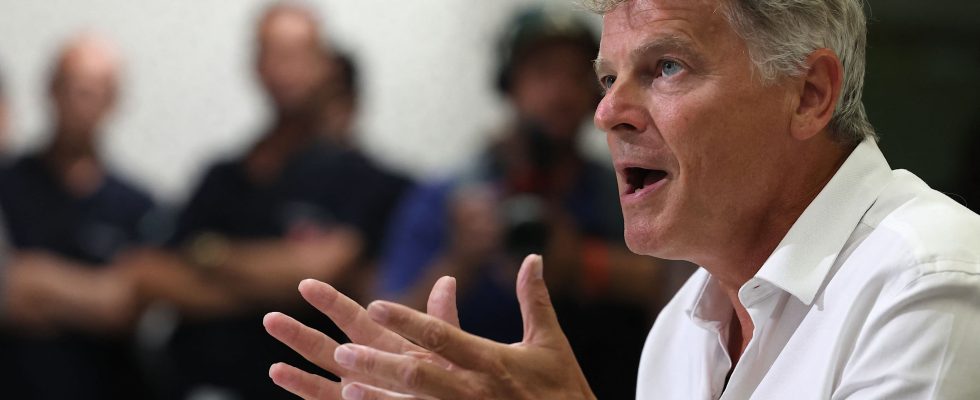In a Mélenchon-style outburst, the national secretary of the Communist Party Fabien Roussel castigated inflation and low wages a few days ago, demanded a price freeze and threatened to invade stores and prefectures – for reasons of elsewhere unclear, because it is difficult to see how forcing the door of a business or a public building would be deflationary. This race to excess, both clownish and dangerous, deserves no lenient comment. On the other hand, the question of wages and prices is serious. It is imperative to take stock.
Salary catch-up has taken place
I was the first to write, in these columns, that companies, especially the largest among them, were not increasing salaries sufficiently in the face of inflation. Having supported the spring pension reform, it seemed obvious to me that we could not ask our compatriots to work two more years without the work being sufficiently remunerative to, at a minimum, fill their shopping cart with groceries and even treat yourself to some leisure activities and vacations.
But that was a few months ago. Recent statistics show that companies have increased salaries. Finally ! In 2023, inflation will average around 5%. According to figures from Dares, the statistical service of the Ministry of Labor, wages in the private sector increased by 4.6% in the second quarter, year-on-year, compared to 4.7% in the previous quarter. The acceleration seems to continue, so that, over the year as a whole, wages will compensate for inflation. And again, we are only talking here about so-called “basic” salaries, that is to say without taking into account bonuses, profit-sharing, career advancement or changes of position or even companies, which are almost systematically result in increases.
In reality, the purchasing power of employees in the private sector will undoubtedly have increased a little this year. Another comforting point: the increase is greater for low salaries due to the ripple effect linked to the increase in the minimum wage, which is higher than inflation. Conversely, executive salaries are increasing more slowly. Thus, the average increase in the purchasing power of employees in 2023 will be accompanied by a reduction in salary inequalities. France is not the most socially violent country in the world.
Capping prices or selling at a loss is bad policy
Obviously, these figures are valid for 2023 but not for 2022 where, as a result, inflation was higher than the increase in wages. At the end of this year, it is likely that the loss of purchasing power triggered by the post-Covid inflationary shock will not have been fully compensated. But this will be the case in 2024. An IMF study published in November 2022 and covering a wide range of developed countries since the 1960s showed that the losses in purchasing power following an inflationary shock were temporary and compensated, in secondly, by increasing wages. France in 2023-2024 is no exception to this historical regularity.
Fabien Roussel can look for a scandal in the excess profits, the dividends or the salaries of the richest: he will not find any. As for the idea of capping prices, or authorizing sales at a loss as the government is preparing to do for fuels, it consists of exchanging inflation for shortages. It’s bad policy. Does this mean that there is no salary problem in France? Oh no. Salaries in our country have become lower than the OECD average, by around 3%. But this relative decline is not the consequence of bad will on the part of companies. It is the natural extension of economic growth which, in the long term, plateaus around 1%, which is incompatible with the social ambitions of our country.
This is the root of our difficulties. The competitiveness of our exports, reindustrialization, schools, higher education, continuing training: these are the subjects that should be thought about if we want to act effectively and sustainably on the level of wages, inflation or not. Topics that go far beyond the scope of the upcoming social conference.
* Nicolas Bouzou is an economist and essayist
